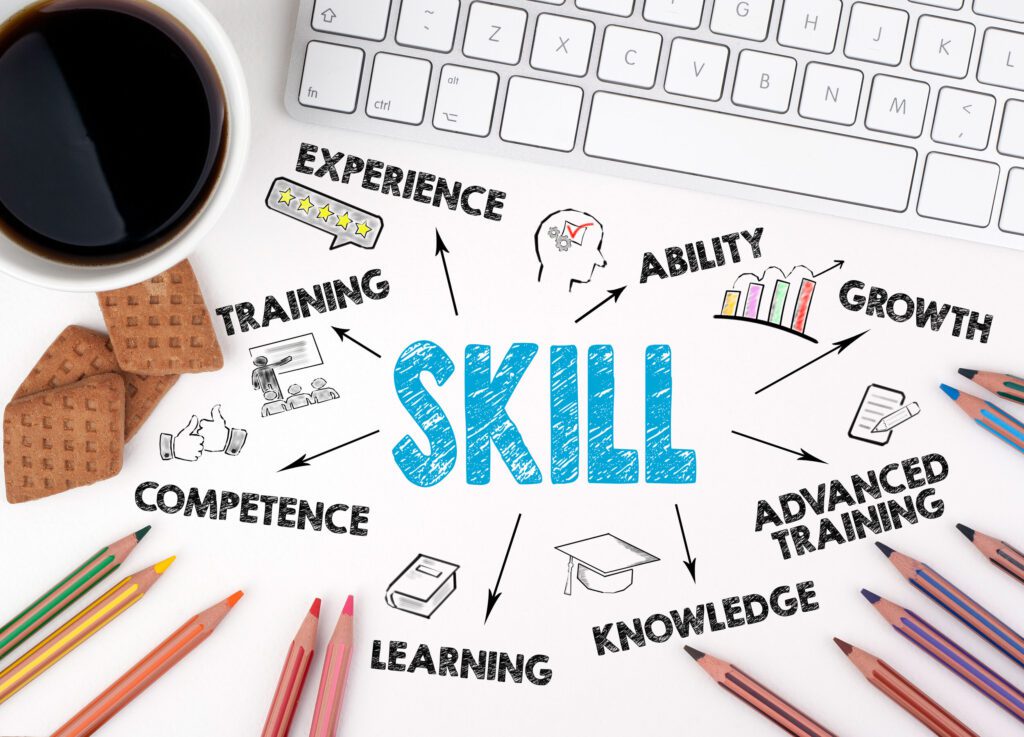During a discussion about career development, Jeanette Hung, the coordinator of Career Counselling Services at Dalhousie University, explained:
“Career development matters because a career means so much more than the salary, security, and benefits we get from a job. A career affects what we can become and contribute, and who we impact in the pursuit of our work. To speak about career development is to speak about what your career means over your lifetime. Your career is a process that continues indefinitely; purpose, meaning, gratification, and passion are found not only in the result but are present in the pursuit of work itself.”
Most companies absolutely agree with this and strive to develop their workers’ careers to the best of their ability. But employees may not always feel this way. 74% of employees believe that lacking employee development opportunities keeps them from attaining their full potential.

Pushing staff development a priority guarantees your team is up to industry trends and best practices. Furthermore, providing professional development opportunities attract top talent, which has been difficult in the competitive market. So, what is employee career development, and why should you be concerned?
What is career development?
Career development, also known as professional development or staff development, is the process through which individuals go through professional training or pursue learning opportunities to enhance their abilities and increase their knowledge and careers with the help of their company.

Career development does not just relate to honing an individual’s skill set for a specific function. RaInsteadit refers to ongoing education that grows professionals and aids them in their career trajectories. While it is ultimately the person’s duty to own their professional development, it is in the company’s best interests to support ongoing education by offering or enabling both internal and external learning opportunities.
For instance, employee development is prioritized to guarantee that team members’ abilities continue to advance following industry trends and best practices.
Why is career development important?
Employers who invest in employee development enable their workers to sharpen their strengths and learn new abilities, better preparing them for their jobs. This provides additional value to their labour and directly helps your company.
Perhaps more significant is the importance that employees and job seekers place on growth possibilities when evaluating offers. Making learning and development a priority in your corporate culture improves employee engagement and retention and attracts top applicants. We’ll now take a look at the reasons why career development is so important.
Career Development and Employee Engagement
Research has demonstrated that increasing employee engagement leads to increased productivity. We know what increases employee engagement: employee connections with managers, job clarity, enough resources, and a supportive work environment.

So, why do engagement scores never seem to reach the heights we expect? Despite all of the measures in place, why is there a misalignment of expectations between employees and the organization?
Two causes emerge from career management research and our experience working with hundreds of organizations:
- Organizations are unsure why career development is crucial in boosting employee connection, commitment, and engagement. Many organizational career development activities are haphazard, intermittent, or focused more on individual performance and learning than career development.
- The emergence of labour market uncertainty has left people trying to grasp their job security and how to make sense of their future careers.
Prior generations were concerned with finding meaningful jobs. Today’s workforce has demonstrated that work is no longer “just work.”
Increasing employee engagement via career development is one technique for resolving business owners’ staffing challenges. According to the 2015 Small Business Owner Report, 38 percent of business owners said obtaining the proper personnel was a fundamental problem, while 16 percent said employee turnover was a top concern. So, how can employers ensure that employees feel engaged amidst this market uncertainty?
Boosting Employee Engagement with Career Development Opportunities
The vital factors that have historically impacted employee engagement:
- Perceptions of job importance
- Clarity of job expectations
- Open dialogue with managers
- Positive work relationships with peers, superiors, and subordinates
- Personal alignment with the organizational culture and values
- Effective internal communications
- Career development opportunities
In an ideal scenario, a company would endeavour to promote employee engagement, build a strong corporate culture, and show employees that they are valued. But there is more significant stress given to the last point. Why?

A Randstad and Ipsos Public Affairs study has emphasized the significance and efficacy of career development programmes. According to 28 percent of workers polled, one of the most successful engagement methods is “investing in employees’ careers through training, professional development, or continuing education.”
Companies benefit from Career Development opportunities too!
When you engage people by concentrating on their professional growth, the company benefits in several ways:
- Employees stay with a company because they are interested and growing in their professions, and they are more likely to perform at a better level.
- Employees can benefit from increased institutional knowledge.
- A culture focused on development and progress eventually improves your company’s capacity to perform successfully.

Employees that participate in professional development are not only more productive but are also more profitable. According to Forbes, organizations that provide comprehensive training programmes have a 24 percent better profit margin and a 218 percent higher revenue per employee than companies that do not offer systematic training. Let’s now look at how career development can help improve employee retention too!
Career Development and Employee Retention
Employees Leave For Lack of Career Growth
Nobody wants a dead-end career at a corporation that doesn’t care about its employees. The Great Resignation has been characterized as a record number of people quitting their positions in quest of better work-life balance, income, and perks. Another factor for employee turnover is a lack of professional development opportunities. According to an analysis by Monster from the autumn of 2021, 45 percent of polled employees stated they would be more inclined to stay at their present positions if given more training. Develop your workers’ careers, and you’ll be rewarded with increased performance and retention.

The most crucial benefit for retention in 2022 is career development.
Employee development is a long-term investment that may aid in the retention and growth of your workforce. According to Bankrate’s August 2021 Job Seeker Survey, 55 percent of Americans are considering searching for a new job in the next 12 months, making employee retention more vital than ever.
Most employees would remain with a company that invests in employee development.
According to Clear Company, 94 percent of workers would remain longer if organizations focused on employee development. Employee development is a desirable employee perk. If you don’t start investing in and growing your staff, they will find someone who will.
Career Development is required for employees to reach their full potential.

According to Clear Company, 74% of employees believe a lack of professional growth is holding them back from realizing their full potential. With just 29 percent of firms having defined learning and development strategies in place, many employees are set up to feel unappreciated and undeveloped, resulting in a disengaged workforce and high turnover rates. Investing in employee development makes your employees feel good about their ability to progress, and these learning opportunities may also convert into critical promotions that help you keep top personnel.
Conclusion
You demonstrate your dedication to your employees by giving opportunities for them to expand their knowledge, skills, and expertise. In turn, this emphasis on personal growth boosts the employees and increases their commitment to the firm, leading to increased employee engagement.
Employees who are engaged are less likely to leave, so focusing on their professional growth might save you a lot of money. According to a survey on the cost of Millennial retention, organizations spend between $15,000 and $25,000 to replace each person lost. It takes 3 to 7 weeks to acquire an employee in a new capacity. Add to it the time it takes for a new employee to become fully productive.
As a result, making career development a priority in your organization will help your company in several ways. Investing in your staff fosters an engaged workforce, which is more productive, lucrative, and appealing than disengaged personnel.





